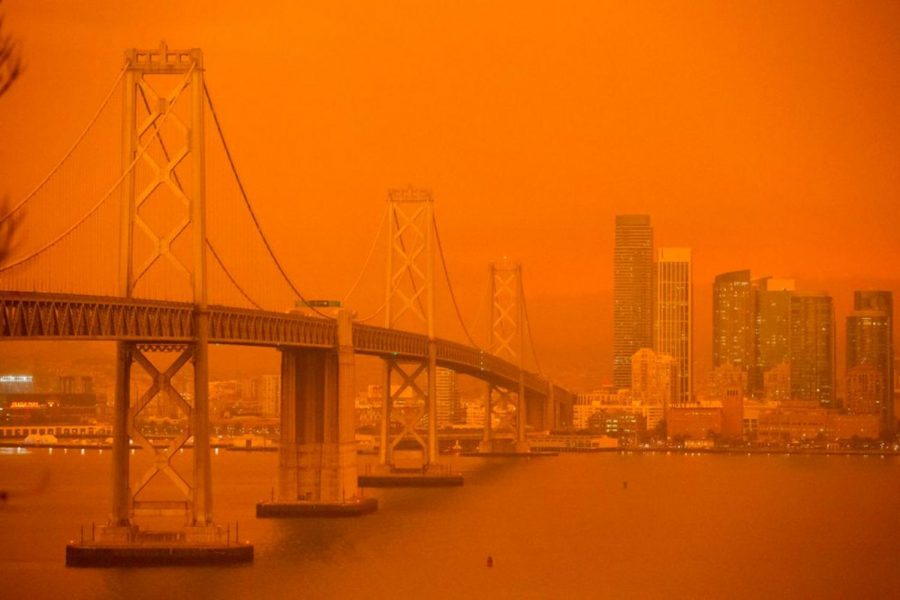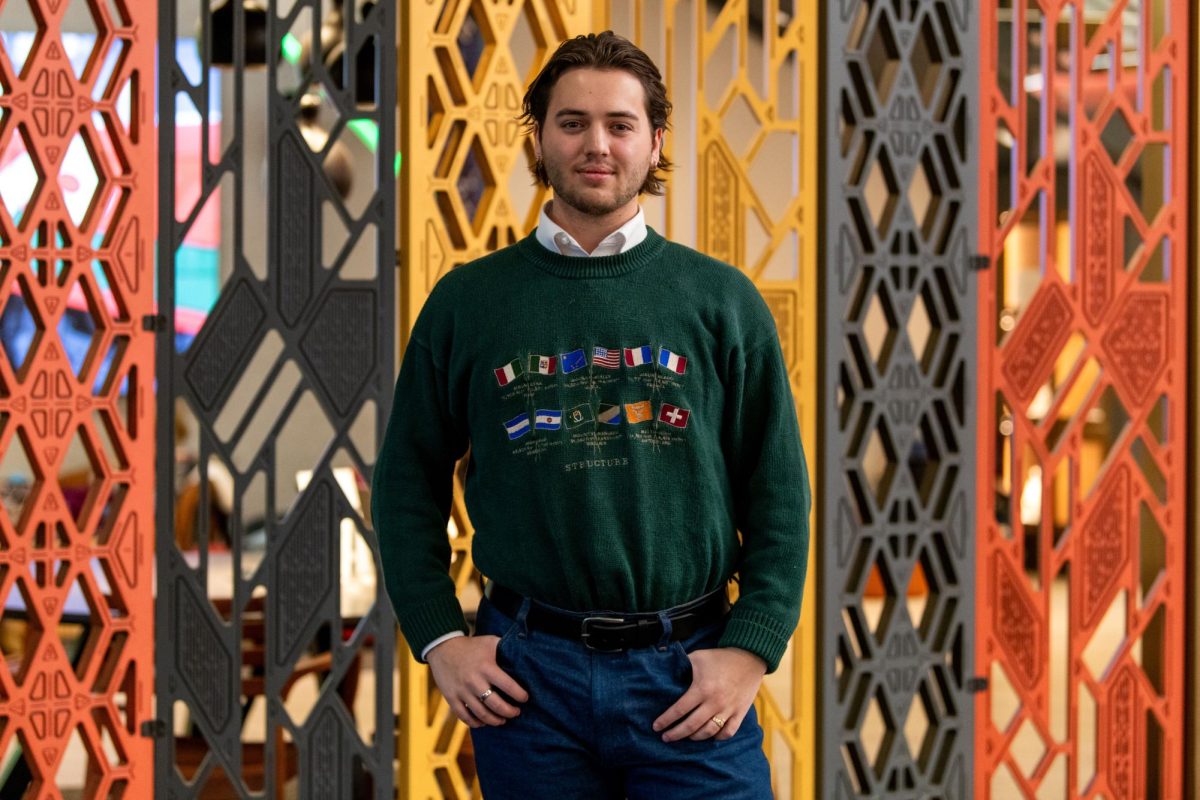Editorial | The wildfires are just the beginning
Photo by BRITTANY HOSEA-SMALL/AFP via Getty Images/TNS
The hot and dry weather in California has paved the way for the worst wildfire season in years.
September 16, 2020
The hot and dry weather in California has paved the way for the worst wildfire season in years. According to CalFire, more than 16,500 firefighters were battling 28 widespread fires over the weekend. And though California has gotten the most media attention, fires are actually raging all along the West Coast. There have been at least 35 deaths as a result in California, Washington and Oregon.
To many, 2020 has seemed like a series of unfortunate events. We’re living amid a global pandemic, and now experts are concerned the spread is going to worsen from hurricane season and now wildfires, too. But these natural disasters are becoming less natural and more man-made. They are exacerbated by climate change, and we’re finally being forced to face hard consequences. If we don’t acknowledge that the fires are worsening due to climate change, and that we’re facing direct repercussions, we’ll never be in a place where we can begin to make improvements. The disasters will continue to get worse.
President Donald Trump was largely silent about the wildfires until last week, when he paid a visit to California. He said the fires were mostly a result of “forest management,” rather than climate change, which has been debunked by CNN. Both California Gov. Gavin Newsom and Los Angeles Mayor Eric Garcetti have pushed back on Trump’s assertion.
“It’s been very clear that years of drought, as we’re seeing, whether it’s too much water and too much rain in parts of our country right now, or too little,” Garcetti told CNN on Sunday. “This is climate change and this is an administration that’s put its head in the sand.”
While wildfires are natural to some extent — hence the name wildfire— they’ve worsened over the past decade due to rising temperatures and greenhouse gas emissions. The heat dries out the soil and vegetation burns faster. Also, snow routinely melts earlier, and therefore, leaves forests with less moisture for longer periods of time. We are not on the path to improvement.
Because of the pandemic, we’re facing direct repercussions from climate change and the wildfires. Wildfire smoke and ash irritate the breather’s lungs, and can often cause inflammation or weaken the immune system. The Centers for Disease Control and Prevention warns that wildfires can make a person more susceptible to COVID-19. Staying inside is obviously the safest solution, but this isn’t plausible for people who have to leave their homes for work or to buy necessities. Wildfires, like hurricanes, also cause displacement. Hotels are filling to capacity and evacuation centers pack people in tightly, and displacement often leaves certain people with no choice but to enter a crowded place to sleep.
Natural disasters are being exacerbated by climate change. This is no longer up for debate. The wildfires and a worsening coronavirus are seeping into other public health areas. If we don’t firmly acknowledge what’s causing the fires, we’ll never find ourselves in a place to work toward more sustainable energy sources and lowering the rising temperatures. In some form, the cycle will continue to repeat.








